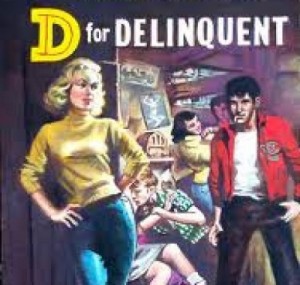At a meeting in Cannes a guy got up to heckle Michael Moore, asking him why he paid his workers such lousy wages. Moore had him thrown out. There are always good reasons why entertaining but basically banal populist lefty/liberal movies like “Fahrenheit 9/11” avoid the essential critique of capitalist social relations: the creators of such movies are as complicitous in these hierarchical relations as Bush or Blair (even if differently complicitous). In fact, almost all movies so far, along with their creators, are part of the problem and not part of the solution: they produce a message or a story which is just a commodity to be bought – the audience remains passive, happy to be entertained or to consume the ideology.
The best thing about Fahrenheit 9/11 is that it never shows that endlessly repeated footage of the 2 planes hitting the twin towers or their collapse, a gesture towards subtlety not matched by the crudely populist democratic ideology that pervades the film as it does American ideology generally. Through avoiding virtually all explicit criticism of the Democrats, the underlying message is “Vote Bush Out!”. Everything comes down to mere personalities – as if the desperate debt crisis of American capital doesn’t force it, regardless of the President’s name, to pursue the only strategy where its power is superior – the military strategy. Populism doesn’t want to get entangled in such complexities – it’s aim is to win people over to some ‘message’ rather than to develop some practical opposition to their rulers and their economy. In this upside down world in which many people justify their ideology according to the amount of adherents who can repeat it, populism pretends to be anti-elitist, whereas ideas that encourage people to think and act for themselves are considered intellectually obscure, therefore elitist. Moore is now part of the rich oppositional elite who prides himself on being a man of the people.
Even if, in interviews separate from the movie, Moore doesn’t support Kerry (not surprising – the imperial project of this shithead is even more expansionist than Bush’s; he’s just a cleverer subtler manipulator than the buffoonish Bush), there is virtually no criticism of the Democrats because that might force him to criticise American bourgeois democracy, and that’s a taboo no-one who wants to be immediately popular in America can dare break: if he clearly and unambiguously criticised the Democrats, ticket sales would plummet. It comes as no surprise that Moore was invited to the Democratic convention by Jimmy Carter’s family. Carter, like that other Nobel Peace Prize winner, Dr. Kissinger, was such an advocate of peace that he could massively arm the Indonesian government which slaughtered over 200,000 East Timors; he also helped set up the precursors of the Taliban that Moore attacks – the Mohajadeen, whose most famously pacifist fighter was Osama Bin Laden.
In the movie Moore says America is a great country. A load of “let’s not offend anyone” bollocks: like all nation-states, it’s crap, even though there might be some good things despite the crap. The implication is also that Bush and co. are ruining the country, as if all capitalists for 200 years haven’t constantly ruined life for the vast majority. American ideology always says “The country’s great – the problem is particular politicians and specific millionaires”. Moore’s film is the best ad for America you could have – in America you can come from a poor background and still make it – even by attacking the high-ups (and that’s one of the American ways to become a high-up). The country’s “great” for the likes of Moore because the myth that in America you can rise whatever your background has paid off for him. For at least 90% of the poor and working class, this is the carrot that is never reached. It’s not just that Moore doesn’t want to be accused of anti-Americanism, which could certainly reduce sales, but the fact that one of the more regressive aspects of ‘opposition’ in the States is that it has to claim to be patriotic because basically it sees solutions only in national terms because all sense of international class struggle and of its history has been lost. Ignoring all historical experience, they hope to develop some national political organisation to reform the State. But as long as hierarchical power exists, so this earthly hell will continue to exist.
“Fahrenheit 9/11” is a classic liberal/left bit of journalism. It’s mildly entertaining and reminds you of your anger, but with virtually nothing to say about the world since 9/11 which hadn’t been said sometime before by loads of people who, unlike Michael Moore, never wanted to make a professional career out of their opposition to US foreign policy (for this reason they often had more to say than Moore). Even the details about Bush’s connections with Saudi capital only fill in very specific details about a general connection that everyone who wanted to could find out for themselves. And it’s not precise secret details of corruption that make me hate this world – the details are endless and inexhaustible – the question is “What do these details tell us about the competing capitalists strategies and what are we going to do about them if anything?”. This is the problem: most people want their thinking and acting done for them – hence they look to journalists like Moore to do their research for them and ‘simplify’ things. Conspiracy ideology is the ultimate simplification, reducing all the complexities of opposing this world to the pursuit of endless details researched, consumed and churned out in the same way some people relate in great detail the story line of the latest soap opera. And Moore says less than is necessary for even a limited take on Iraq and the current world situation, even though he lightly alludes to a lot. For example, why so very little about the Gulf war in ’91 (supported by the whole of the UN) and the subsequent sanctions policy, which, with the support of France and other countries, resulted in 500,000 Iraqi kids dying in the first 5 years of its existence until it was then opposed by France, etc?
One of the more entertaining clips in the movie was Moore approaching Congressmen to ask them if they could offer their son to be recruited to fight in Iraq. Armed with a team of cameras and engineers who are being paid, well-known professionals can now do things which we mortals would love to do but would be arrested within 2 seconds if we tried. This is the image of freedom this society promotes: paid representatives who do what we’d all love to do but risk far more if we do (Mark Thomas & Dennis Pendennis in the UK come to mind). It’s above all this commodified representation of subversion that makes the wealthier forms of capitalism seem so much more open and free than the old style totalitarianism of Saddam Hussein or the Saudi ruling class.
As always with the cinema, you have some passively absorbed ‘collective’ experience which, because it’s never followed by everyone who’s just watched it debating the issues and some maybe coming to some practical conclusions, leaves you alone, leaving the theatre silently, or just discussing it with friends. But then that’s what all commodities do – and though each film-commodity is different, films just enrich the careers of the people who make them – they very rarely have concretely explosive consequences, and those are usually despite the intentions of the people who make them (e.g. Bunuel’s “L’Age d’Or” which provoked a riot by right-wing Catholics, or Elvis’ “Jailhouse Rock”, which provoked teenagers in the 50s to tear up the cinema seats so they could dance). A cinema collects a large amount of people together to isolatedly consume, in this case, a polemical documentary. Despite Moore’s ideology of democracy, the film’s not intended to provoke any polemical debate in the cinema that could vaguely be called democratic – each person voicing their point of view in public, communication in a non-hierarchical manner. No – everyone just leaves separately, surprise surprise.
At about the same time that Moore was sitting down in the streets of Cannes to show his CGT-sponsored ‘support’ for the ‘intermittents’* the increasingly precarious intermittents themselves were expressing an interestingly innovative critique of the cinema – occupying one of them, only to be evicted, beaten up and arrested by the cops. Profound opposition is always a risk: Moore’s shallow ‘critique’ is oh so very safe. No wonder he won the Palme d’Or.

* See “Culture in Danger – If Only” (October 2003), for an analysis of the contradictions of the ‘intermittents’ movement ; also available in French with some changes – “Culture en Danger – Si Seulement” (May 1st 2004).

Hits as of 5/4/18: 2411

Leave a Reply